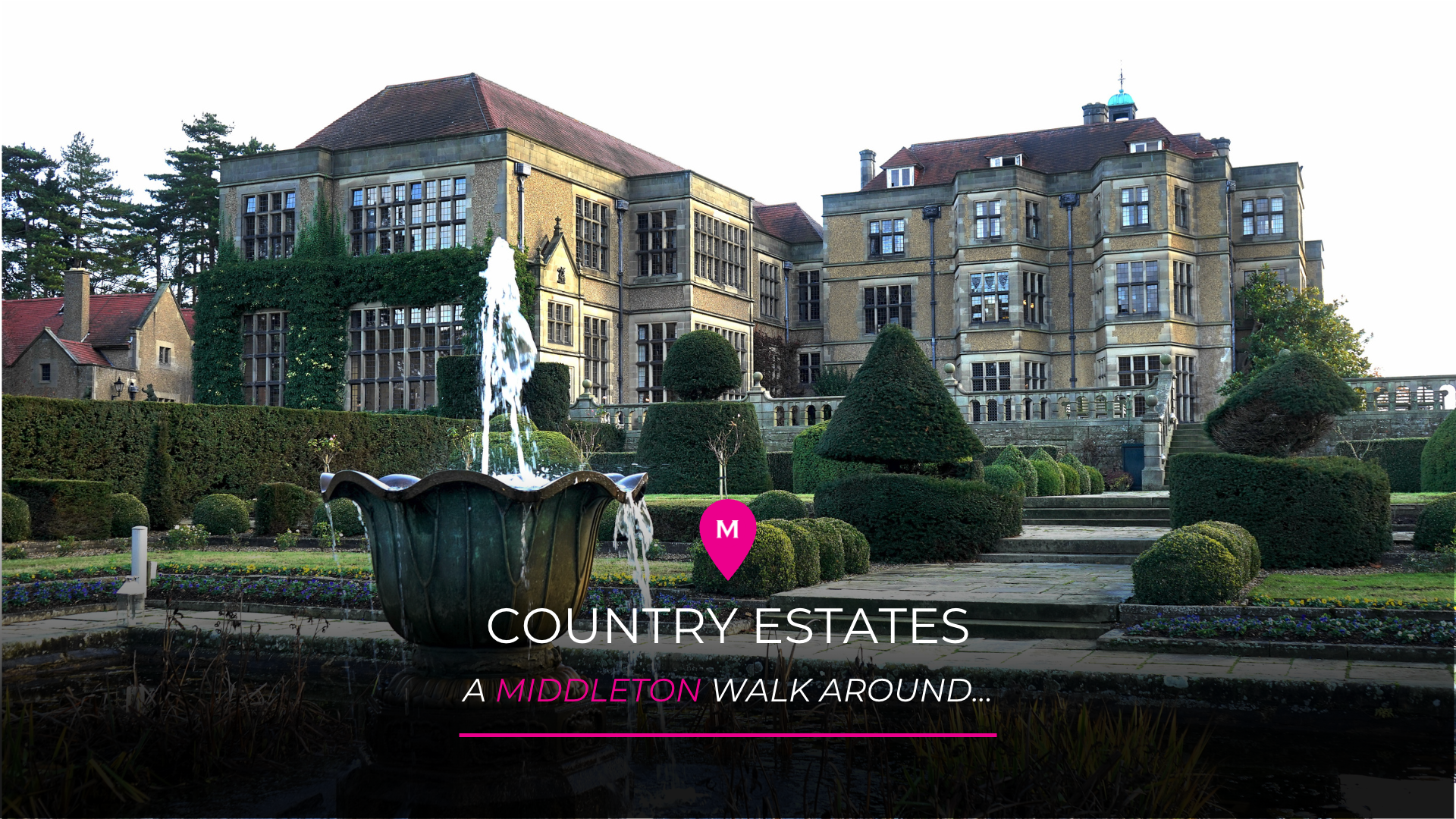Ample space, quintessential English architecture and holding a piece of history are just some of the many reasons that our clients choose to acquire a country estate. When running a large dwelling, however, there are plenty of factors to consider to ensure efficiency, both financially and environmentally. Hosted by our Head of Estates and Special Projects, this Walk Around will look at the opportunities, difficulties, and money-making tips for estate owners.
Main house: Some estate owners open their property to the public and charge a visitor’s fee to visit the vast grounds and admire the interiors. This can be to contribute to running costs or simply to share the historic importance. Regardless of an open or private estate, a dwelling of this size requires extensive upkeep and very often the owners would look to hire additional staff to assist its management. Ranging from landscapers and cleaners to house managers during peak times, it’s a useful exercise to evaluate and prioritise as early as possible which areas require additional attention.
To ensure an estate is energy and cost-efficient, owners must carry out regular and full energy audits – not only will this highlight saving opportunities but can also establish areas within the estate that can be retained and reused to provide energy. For example, solar, wind, and ground sources are all uses that are constantly being innovated and improved. The information on environmental grants and climate change conscious methods, to implement in an estate, are becoming readily available.
There are several ways to run a farm on an estate. Occupiers of the main house can either farm the land directly (in hand) or implement a contracted farming agreement. The result of subsidies, public access and hiring a workforce has a direct impact on choosing the correct route. To avoid confusion or wrong decision-making, it is best to get as much advice on this as possible. If in an area with significant motorway links, a farm shop is a great way to add value to your land, or partner with a local farm and help attract countryside-goers to your area. This can also bring in additional revenue and create jobs for locals, increasing awareness and building relationships with the surrounding community. Jeremy Clarkson’s, Diddly Squat has become a huge hit in the Cotswolds and has built international recognition for its extravagant and unique merchandise.
A good use for unused land or farming barns is to explore the possibility of wedding venue hire, especially if countryside-loving couples prefer a more primitive and simplistic setting with a rustic backdrop. English estates exert opulence and extravagance and many feel as though they’re walking back in time as they enter, hence why they are a popular spot for Romanticist filmmakers. In 1998, Hatfield House in Hertfordshire hosted ‘Shakespeare in Love’ within its grounds and since has become a well-known film location for productions such as ‘Batman Begins’ and ‘Paddington 2’. With all these avenues, it’s important to always adhere to regulations and ensure certain insurance measures are put in place if applicable.
For those with a personal interest in country sports, such as fishing, shooting, or riding, opening land to the public can be a great way to bolster passions and bring in extra income. In addition to standard winter shoots, enthusiasts can ensure business all year round by adding clay pigeon shooting for off-season events and to reach a younger demographic. Equestrian centres can be built on land but it’s important to consider the type of clientele the premises will host, as this will affect the different type of terrain estate owners decide to manage. For non-professional horse riders, there are less strict requirements whereas for racehorses, land must be to a certain standard for jockeys to train.
Key to not only the owner’s enjoyment of the estate, but also the perception, interaction with locality impacts the value of the overall estate business. The owner should respect rights of way and be as involved as possible ensuring a thriving, symbiotic relationship between the estate and the locality. Hosting local events, such as an annual harvest festival or village fete can bring locals together whilst adding exposure to the estate itself as a business.
There are many avenues to pursue when managing a large country estate, but it is important to seek informed and up-to-date advice to ensure the property is running effectively and smoothly.
For advice on purchasing and/or managing an estate and land, head to our website to speak to Tom Hudson, Head of Estates and Special Projects.




